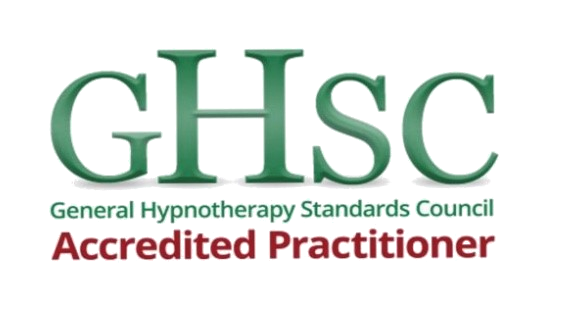CBT Treatment for Low Self-esteem - London, Across the UK and Online Via Video link
We provide in-depth CBT and counselling for low self-esteem from a number of clinics across the UK, as well as online via video-link. Cognitive Behavioural Therapy is the recommended treatment of choice for low self-esteem and the published evidence shows that it is more effective than other forms of therapy or medication. To talk to a CBT expert about treatment for low self-esteem symptoms, call 01732 808626 or email info@thinkcbt.com
What Is Low Self-esteem?
Low self-esteem describes how individuals negatively assess, evaluate and act upon their own sense of low self-value. This is characterised by self-critical thinking, a tendency to exclude positive experiences, problems with confidence, worry about social or interpersonal judgements and avoidance of challenges or unfamiliar situations. Low self-esteem is rooted in negative beliefs about personal inadequacy, being unwanted or unloved and feeling like a failure. Although low self-esteem is not a “clinical” problem in itself, it is a relatively common and a highly debilitating problem that has been linked to a number of depression and anxiety conditions.
What Causes and Maintains Low Self-esteem?
We know that early life experiences including difficulty meeting parental expectations, problems fitting in at school, high levels of family stress, discrimination, punishment, neglect and abuse, contribute to tacit beliefs about low self value. This can also include an absence of positive experiences in our younger lives.
This often leads to a number of unhelpful coping mechanisms including a need to stay in control, a tendency to self-sabotage or overcompensate, perfectionist attitudes and engrained patterns of behavioural avoidance. This places significant limits on social, personal and professional opportunities, as the individual attempts to control or avoid any situation that risks or increases their sense of low self-value.
A vicious cycle is created in which the individual withdraws, limits or avoids interpersonal contact, new opportunities or situations in which they feel exposed or challenged. Although this provides short-term relief, it reinforces long-term negative self-perceptions of not being good enough, not being wanted or loved and feeling like a failure.
These patterns of avoidance and control in the individual’s personal and work life provide a "always expect the worst” perspective; the individual tries to avoid what they don’t want rather than approaching what they do want from life.
Problems with low self-esteem have been linked to other psychological problems including social anxiety, GAD, eating disorders, body image problems, insomnia and depression.
Take the Low Self-esteem Assessment
You can complete the following online assessment to provide an initial indication of how you score on the self-esteem scale. You can either choose to generate a brief email report indicating your responses and the score ranges, or simply opt for an onscreen result. We will not collect or share any personal data from assessments completed on this website. Feel free to keep the report and share this with your psychological health professional.
Download The Think CBT Workbook Here
To get a free copy of the 90-page Think CBT Workbook and Skills Primer, click on the download button and save the PDF document to your personal drive or device. The free version of the Think CBT Workbook is presented as a static PDF, so that you can read the document on your device and print worksheets to complete by hand.
In return for a free copy of the workbook, please help us to promote best practice in CBT by sharing this page or linking back to your website or social media profile.
How Is Low Self-esteem Treated Using CBT?
There are a number of cognitive and behavioural approaches that have been found to be helpful in the treatment of low self-esteem. Pioneering work by Dr Melanie Fennell in the 1990s identified a range of approaches which involve:
- Mapping the history and psychological processes that keep low self-esteem going.
- Identifying unhelpful cognitive patterns, including negative beliefs and dysfunctional rules and assumptions. (This is sometimes referred to as the “bottom line” in low self-esteem.
- Identifying the triggers or situations that activate or maintain low self-esteem.
- Challenging and changing negative thoughts and beliefs.
- Undertaking behavioural experiments to test negative assumptions.
- Gradual exposure to challenging situations to normalise distress and build positive reinforcement or motivation.
- Attention training to shift the focus from negative thoughts, emotions and physical feelings to external tasks or interactions.
These CBT strategies have also been developed further over recent years with the introduction of acceptance and mindfulness based approaches. Acceptance and Commitment Therapy also known as ACT has been used to shift the focus of treatment to self-acceptance rather than self-esteem.This involves learning how to develop a different perspective over the negative thoughts and feelings associated with low self-esteem. Clients are taught to notice, unhook from and normalise distressing thoughts and feelings, in the service of engaging in meaningful or fulfilling tasks. There is a significant emphasis placed on personal values as a basis for viewing identity and self-esteem. Client’s are encouraged to think about “who” they are and “what” they stand up for, as an alternative to material success, looks or personal achievements. At Think CBT, we integrate traditional CBT-based techniques with acceptance and mindfulness based approaches, to ensure that our clients benefit from the best of both strategies.
To talk to a Cognitive Behavioural Psychotherapist about CBT for low self-esteem, please email info@thinkcbt.com or call 01732 808626. You can also complete the contact form or browse our team by completing the “Find A Therapist” form on this page.
















